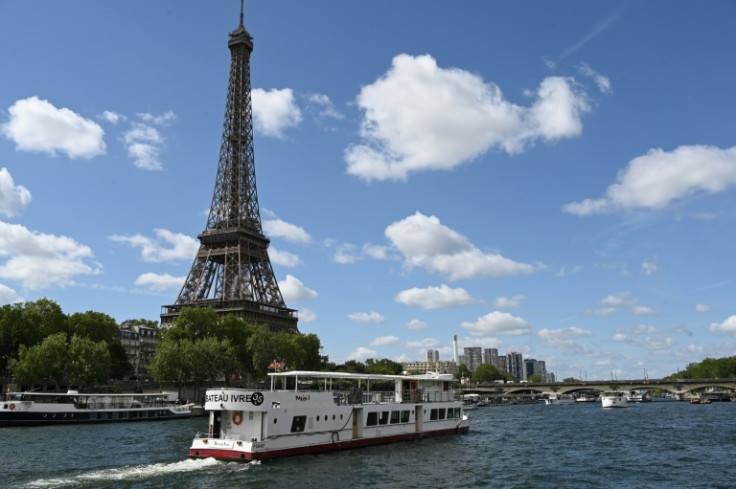Paris Olympics Chief Insists River Seine Will Host Opening Ceremony

The chief organiser of the 2024 Paris Olympics insisted Wednesday there were no plans to move the opening ceremony of the Games from the river Seine amid ongoing speculation about the hugely ambitious water-based show.
After months of denials that contingency plans were being put in place, French President Emmanuel Macron sparked new doubts last month when he said that there was "obviously a plan B, a plan C" for the opening ceremony on July 26.
But Tony Estanguet, who heads the Paris Olympics organising committee, stressed on Wednesday that the location for the ceremony would not change.
"Today, with the artistic director for the ceremony, Thomas Jolly, we are working on an opening ceremony on the Seine. Our teams are not working on any other location," he told France Inter radio.
French security services have consistently raised doubts about having the opening team parade on the river in the heart of the City of Light, citing the difficulty of securing such a large area and the risk of a terror attack or stampede.
With sporting delegations set to sail along the river in a flotilla of around 100 boats, it will be the first time the opening ceremony has taken place outside the athletics stadium in Olympic history.
French Sports Minister Amelie Oudea-Castera called the plans "a key symbol of our ambitions for iconic Games" in an interview earlier this month.
Some media reports have speculated that the ceremony might simply be downgraded in the event of a major terror threat, with the number of spectators limited or just performers, not athletes, permitted to take part.
As many as 45,000 members of the French security forces will be deployed during the Games alongside tens of thousands of private security guards.
Tense negotiations between the government and police trade unions over Olympics bonuses are underway, with one union holding a first protest on Wednesday to demand a one-off payment of 1,500 euros per officer.
Health workers, railway staff and other public sector staff from street cleaners to metro drivers are all formulating bonus pay demands, with Macron's centrist government desperate to avoid strikes or disruption during the global showpiece.
The river Seine is also set to be at the heart of the sporting action during the July 26-August 11 event, with authorities rushing to clean up the waterway so it can host the open-water swimming competition as well as the swimming leg of the triathlon.
Paris mayor Anne Hidalgo promised Wednesday that she would take a "historic dip" in the Seine before the start of the Games to draw attention to what she sees as a key part of the city's Olympics legacy: the creation of three open-air bathing spots for the public.
"Everyone said it was impossible and we've done it," she told reporters at city hall.
Poor water quality forced the cancellation of three swimming test events last July and August, however, and local authorities still have thousands of new sewer connections and key storm-water infrastructure to finish in the next few months.
Estanguet said in December that 84 percent of the Paris 2024 sporting infrastructure had been finished and that organisers were on track to deliver "spectacular games" for the expected 10,000 athletes and millions of spectators.
The first names of the 11,000 people who will carry the Olympic torch around France from May until the opening ceremony on July 26 were unveiled on Wednesday, including five-time swimming world champion Camille Lacourt and taekwondo champion Pascal Gentil.
The torch is set to travel around emblematic sites of France including the site of the world-famous Lascaux caves in the southwest to the D-Day beaches on the Channel coast which were used for the Allied invasion of Nazi-occupied France in 1944.
After the Olympics, the Paralympic Games are set to take place in Paris from August 28-September 8.
© Copyright AFP 2024. All rights reserved.











